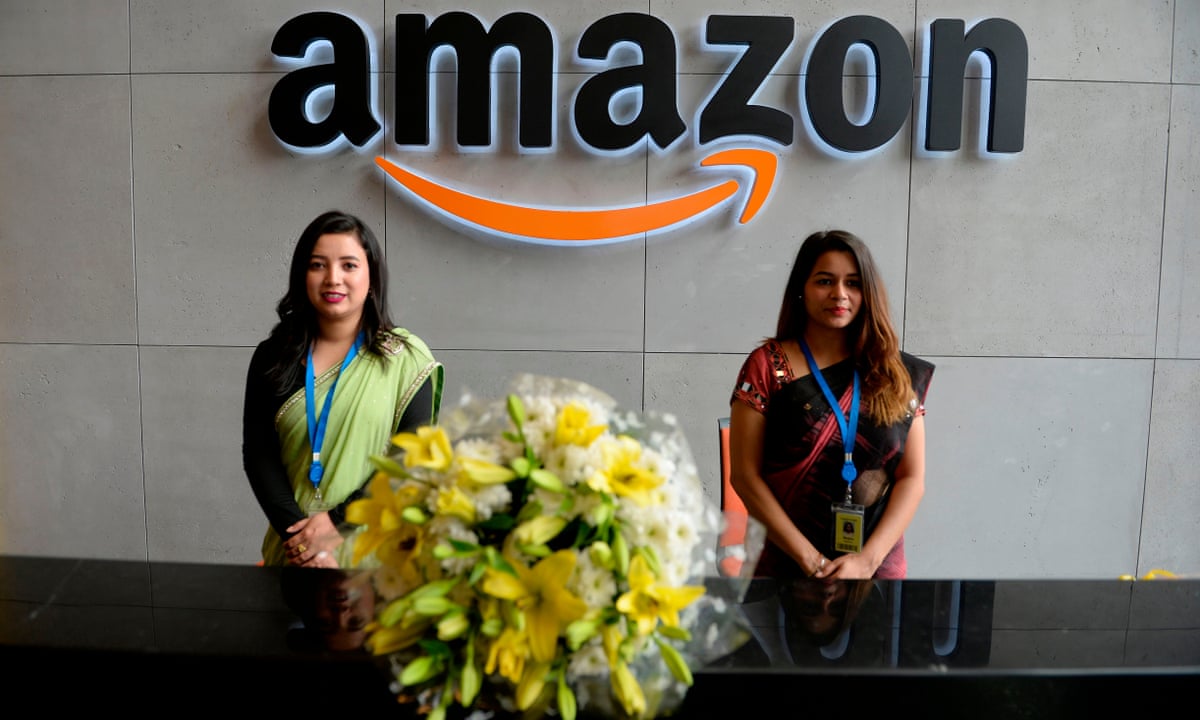Amazon Indian has written government agencies demanding that the interim order passed by a Singapore International Arbitration Centre (SIAC) emergency arbitrator barring Future Retail and Reliance Retail from executing a ventures deal be given cognizance.
In its letter to the Securities and Exchange Board of India (Sebi), the BSE, and the National Stock Exchange (NSE), Amazon India noted that Future Retail and Reliance Retail should not bring the dispute to any tribunal or courts in India or anywhere else.
Amazon India pointed out that if an order passed by a tribunal such as SIAC is not followed in India, there would be international repercussions that Indian businesses maywould face.
After it was announced that Reliance Retail and Fashionstyle were buying Future Retail's assets in a $3.3 billion deal signed in August, Amazon India filed a complaint to SIAC.
Indian companies and foreign companies in India often settle disputes in Singapore to avail of its neutral jurisdiction, high integrity, and international standards.
Amazon argued that the 2019 deal struck between it and the Future Group entity included a non-compete clause, listing 30 restricted parties with which Future Retail and Future Group could not do business that included Reliance.
Furthermore, Amazon has a 4.8 percent stake in Future Retail, giving it the right of first refusal to acquire more shares in Future Retail.
On October 25, a SIAC emergency arbitrator ordered a temporary halt on Future Retail's deal with Reliance Retail and Fashionstyle until a permanent arbitration tribunal was formed after 90 days.
Future Group intends to go ahead with the agreement with Reliance Retail Ventures, arguing that if the deal falls through its retail unit will be forced into liquidation, and 29,000 people will lose their jobs.
The arbitrator emphasized that economic hardship is not a ground for disregarding legal obligations.
Amazon has a 31.2 percent market share in India's e-commerce industry, while Walmart-owned Flipkart has 31.9 percent.



 Washington Post Publisher Will Lewis Steps Down After Layoffs
Washington Post Publisher Will Lewis Steps Down After Layoffs  Kroger Set to Name Former Walmart Executive Greg Foran as Next CEO
Kroger Set to Name Former Walmart Executive Greg Foran as Next CEO  CK Hutchison Launches Arbitration After Panama Court Revokes Canal Port Licences
CK Hutchison Launches Arbitration After Panama Court Revokes Canal Port Licences  Nvidia CEO Jensen Huang Says AI Investment Boom Is Just Beginning as NVDA Shares Surge
Nvidia CEO Jensen Huang Says AI Investment Boom Is Just Beginning as NVDA Shares Surge  Baidu Approves $5 Billion Share Buyback and Plans First-Ever Dividend in 2026
Baidu Approves $5 Billion Share Buyback and Plans First-Ever Dividend in 2026  Amazon Stock Rebounds After Earnings as $200B Capex Plan Sparks AI Spending Debate
Amazon Stock Rebounds After Earnings as $200B Capex Plan Sparks AI Spending Debate  Global PC Makers Eye Chinese Memory Chip Suppliers Amid Ongoing Supply Crunch
Global PC Makers Eye Chinese Memory Chip Suppliers Amid Ongoing Supply Crunch  Sony Q3 Profit Jumps on Gaming and Image Sensors, Full-Year Outlook Raised
Sony Q3 Profit Jumps on Gaming and Image Sensors, Full-Year Outlook Raised  Indian Refiners Scale Back Russian Oil Imports as U.S.-India Trade Deal Advances
Indian Refiners Scale Back Russian Oil Imports as U.S.-India Trade Deal Advances  Prudential Financial Reports Higher Q4 Profit on Strong Underwriting and Investment Gains
Prudential Financial Reports Higher Q4 Profit on Strong Underwriting and Investment Gains  FDA Targets Hims & Hers Over $49 Weight-Loss Pill, Raising Legal and Safety Concerns
FDA Targets Hims & Hers Over $49 Weight-Loss Pill, Raising Legal and Safety Concerns  Alphabet’s Massive AI Spending Surge Signals Confidence in Google’s Growth Engine
Alphabet’s Massive AI Spending Surge Signals Confidence in Google’s Growth Engine  DBS Expects Slight Dip in 2026 Net Profit After Q4 Earnings Miss on Lower Interest Margins
DBS Expects Slight Dip in 2026 Net Profit After Q4 Earnings Miss on Lower Interest Margins  SpaceX Pushes for Early Stock Index Inclusion Ahead of Potential Record-Breaking IPO
SpaceX Pushes for Early Stock Index Inclusion Ahead of Potential Record-Breaking IPO  OpenAI Expands Enterprise AI Strategy With Major Hiring Push Ahead of New Business Offering
OpenAI Expands Enterprise AI Strategy With Major Hiring Push Ahead of New Business Offering  Rio Tinto Shares Hit Record High After Ending Glencore Merger Talks
Rio Tinto Shares Hit Record High After Ending Glencore Merger Talks  American Airlines CEO to Meet Pilots Union Amid Storm Response and Financial Concerns
American Airlines CEO to Meet Pilots Union Amid Storm Response and Financial Concerns 































